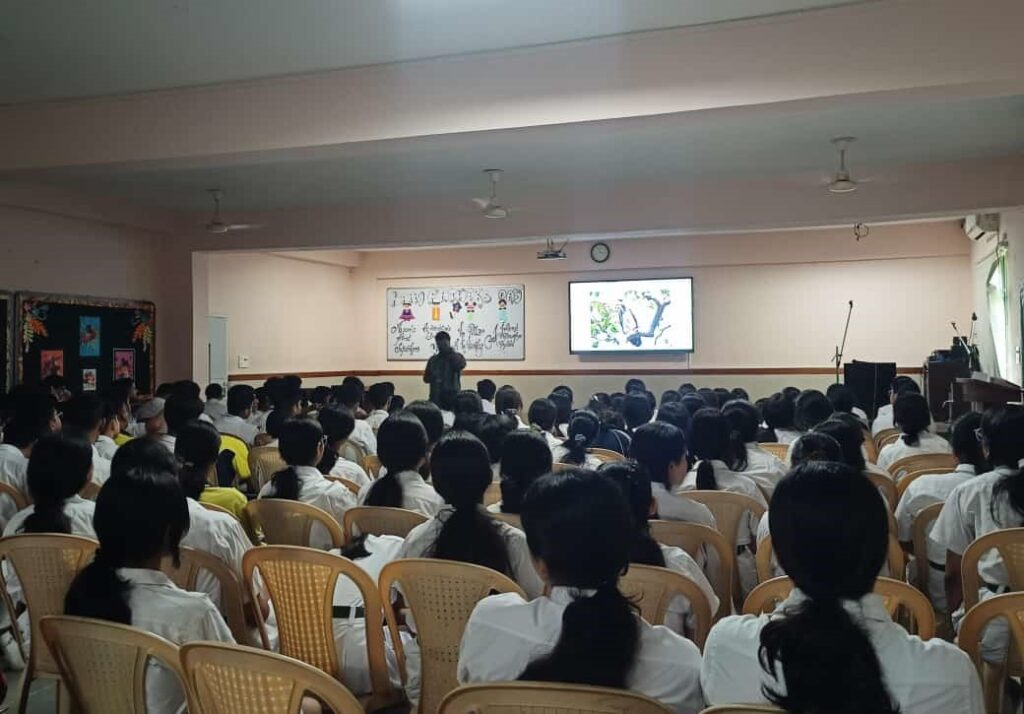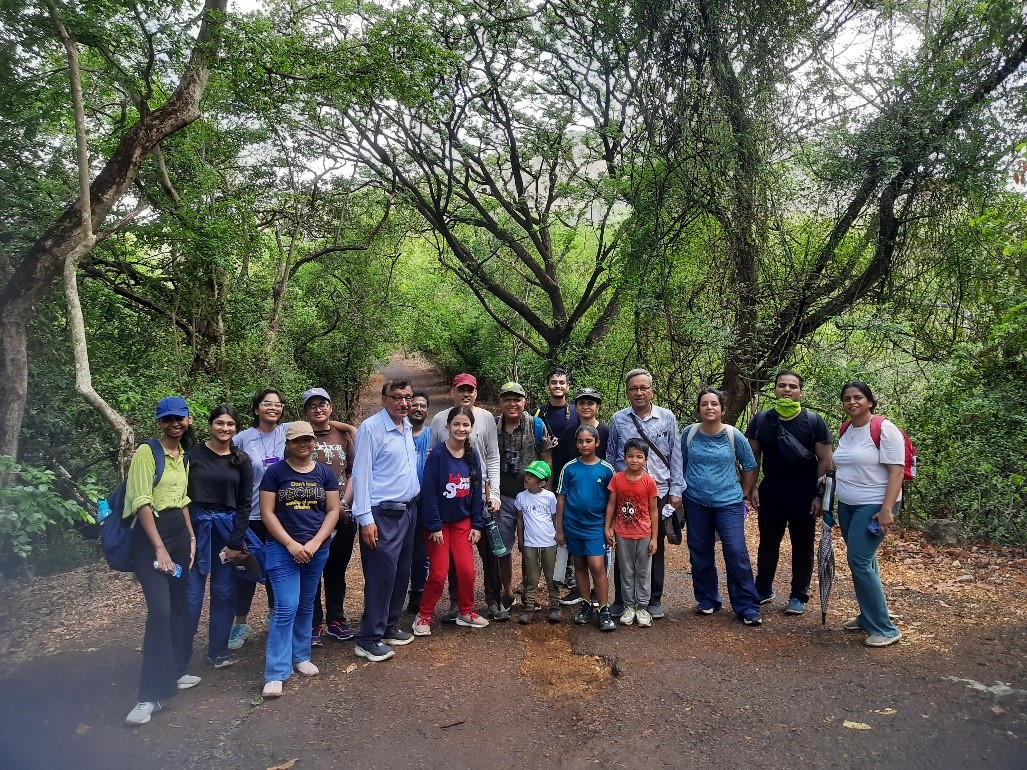The Bombay Natural History Society (BNHS), India’s leading nature conservation organization, marked World Environment Day with impactful events designed to raise awareness and foster a deeper connection with nature. The celebrations featured various educational and hands-on activities nationwide, demonstrating BNHS’s commitment to environmental conservation and sustainable practices. BNHS scientists & Staff organized a range of programmed which included interactive sessions, nature trails, tree planting, webinars, and online campaigns. BNHS engaged participants of all ages in understanding the
importance of protecting and restoring our natural environment.

Bhopal, Madhya Pradesh: the BNHS-Vulture Conservation Breeding Centre (VCBC) celebrated World Environment Day by planting tree species on the BNHS-VCBC campus. This initiative underscores the critical role of nature restoration in achieving a sustainable future for all. Five tree species were planted, namely Javan Palm, Neem, Seesam, Banyan Tree, and Bur-Flower Tree. The BNHS-VCBC Bhopal staff led by Dr Arockianathan Samson, conducted this tree planting activity, contributing to the enhancement of local
biodiversity and ecological resilience.
Guwahati, Assam: BNHS orchestrated an engaging educational session at the Delhi Public School, Guwahati for 40 students from Class 9th along with five teachers. The Session was on vulture conservation and was spearheaded by Mrs. Sanchita, this event was crafted to instill a profound sense of awareness and appreciation for wildlife conservation among the youth, fostering a generation of environmentally conscious citizens.
Mumbai, Maharashtra: A free nature trail, was organized at the BNHS Reserve at Goregaon to emphasize the importance of forest biodiversity and the forest’s role in prevention of desertification and building resilience against drought. The trail was guided by BNHS CEC staff and Volunteers – Ms. Priyadarshini Supekar, Mr. Dilip Giri, Mr. Sumit Dhotre and Mr. Noah Telang and was attended by 38 BNHS Members. Additionally, a tree walk conducted at the Nehru Science Centre was led by Ms. Kiran Thumma, Education Officer at BNHS CEC-Mumbai which was attended by Twenty-five BNHS Members who explored the
rich diversity of tree species.
Drass, Ladakh: BNHS’s initiative extended to hosting a comprehensive session shedding light on wildlife research and career avenues, with a specific focus on Himalayan Brown Bear ecology. Following this session, a dedicated cleanliness drive was organized, accompanied by a spirited public awareness campaign. These efforts underscored BNHS’s holistic approach to environmental stewardship and community engagement.
BNHS-EIACP Division: In pursuit of a broad national engagement, the BNHS-EIACP conducted a webinar on the ‘Ecological Role of Butterflies, conducted by RFO Ruchi Dave from the Gujrat Forest Department. Drawing in 120 attendees hailing from every corner of India. Complementing this initiative, an online poster campaign was launched addressing a variety of critical environmental issues.
“Every step we take to protect our environment is a step towards a brighter future. On this World Environment Day, BNHS reaffirms its commitment to fostering a deep connection with nature and promoting conservation efforts. From planting trees in Bhopal to teaching students about vultures in Guwahati, we’re spreading the message of protecting our environment.” Said Mr Kishor Rithe, Director, BNHS
About BNHS:
The Bombay Natural History Society (BNHS) is one of India’s oldest and most respected nature conservation organizations. With a history spanning 141 years, BNHS is committed to studying, conservating, and educating India’s natural heritage. Through various initiatives, research projects, and educational programs.
About World Environment Day:
World Environment Day (WED), celebrated annually on June 5th, is the United Nations’ primary platform for raising awareness and driving action for environmental protection. Established in 1974, it involves participation from over 150 countries, engaging governments, NGOs, businesses, and individuals in activities focused on critical environmental issues. Each year, WED addresses a specific theme to highlight pressing environmental challenges. This year’s theme emphasizes the importance of land restoration, desertification prevention, and building resilience against drought.

